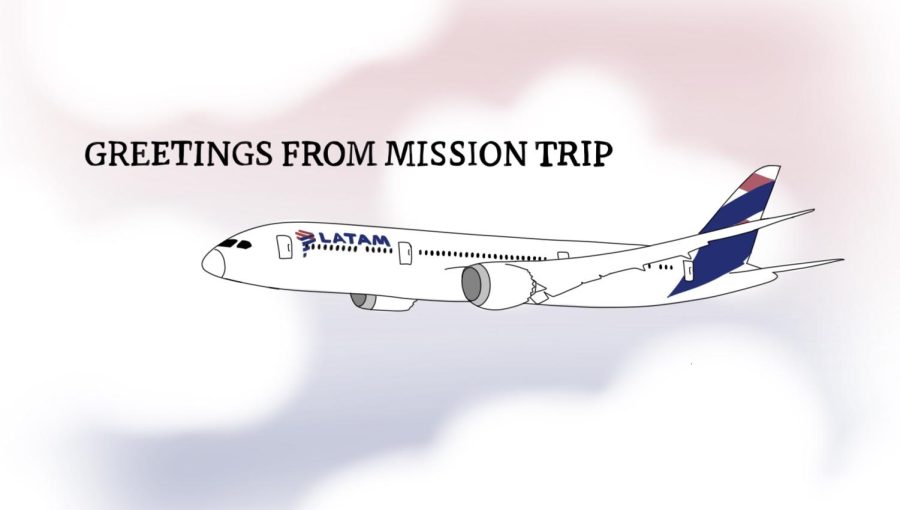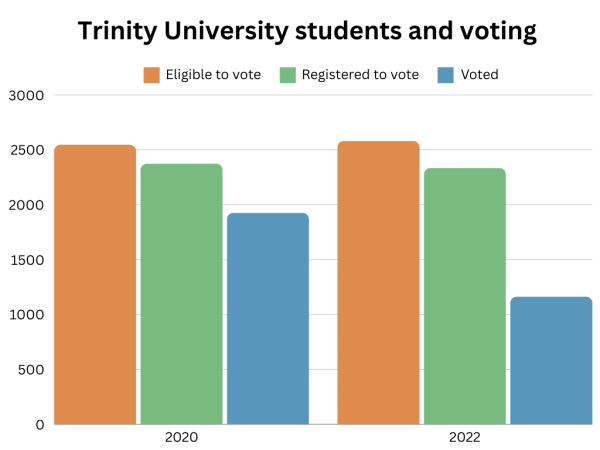Let the savior complex go: the real impacts of mission trips
Mission trips conjure up an image of selflessness and goodwill. Maybe you think of building houses or schools for underserved communities. Or, maybe they bring to mind teaching kids English and math, giving them the skills to succeed. For many, mission trips seem like a benevolent force, spreading resources and education throughout the world.
What not everyone considers is that international mission trips are largely a modern, covert form of imperialism, where religion is used as a bargaining chip for aid.
Missions have a brutal and messy history between Western powers and the rest of the world. From the forced conversion of Indigenous peoples across the Americas to modern-day evangelism in Africa and the Caribbean, the trend of using religion as a mechanism of “spreading civilization” has ingrained itself in the attitude of the colonizer. Although mission trips today do not subscribe to the more forceful tactics of hundreds of years ago, they still operate under the framework of savior complexes, where the focus is making oneself feel good rather than providing true help.
International mission trips have become an opportunity for people in Western countries — especially in the U.S.A — to experience the “exotic” environments of countries in the Global South. These “voluntourists” travel to countries in Latin America or Africa with the intention of providing aid, but only if that aid can be quantified and documented to demonstrate the quality of their character. Missionaries turn Black and Brown children into props for a contrived image of saviourism, making them feel good about themselves, even if these trips have more insidious consequences.
The countries that receive the most missionaries are the ones directly affected by colonialism and imperialism. For example, Haiti has been economically ravaged by the U.S. for centuries and sees approximately 1,700 long-term missionaries, 2,000 missionary-run private Christian schools and hundreds of short-term missionaries each year. Despite the sheer number of individuals participating in international mission trips, the quality of help has been consistently low across the world, as missionaries try to fix symptoms rather than the systemic problems of poverty, famine or educational disparities — most of which only exist because of the impacts of colonialism.
Additionally, many missionaries do not have the skill sets to qualify them for the construction of buildings, propagation of knowledge or even administration of medicine, further reducing the efficacy of these mission trips. Missionaries’ taking over those tasks also reduces the number of jobs available to the local population, further impeding economic development. They fly in, provide short-term benefits on the condition of religious education, and then leave without providing true lasting impacts. Instead of pouring thousands of dollars into travel and housing for missionaries, that money could be spent on organizations that address specific systemic issues.
Volunteer trips do have the potential to aid communities, such as through medical care. Qualified doctors or other professionals have the ability to share their skills and improve the physical and mental health of people who may not be receiving this care. However, the current framework of most medical volunteering trips — usually lasting between a few weeks to a few months — is still flawed even when independent from religions, as it still largely relies on the saviourism that defines international mission trips. Multiple surgeons and physicians participating in these programs have stated how the cost of their trips seems exorbitant when that money could be used directly to help those communities. Many have also noticed that they do nothing to educate existing health professionals in the Asian or South American countries they visit. They help and then they go home, leaving the health care in that community no better than before. The problem with mission trips and voluntourism is deeper than religion; rather, it is the idea of saviourism and self-gratification over real, impactful change that can cause lasting harm.
Before signing up for a mission or volunteering trip, it is important to educate yourself on the consequences that come from them, as unintended as they might be. Take time to look into other ways to provide aid without using religion as an ultimatum, and remind yourself that the goal of volunteering is not to show off what a good person you are. The communities receiving the aid are full of real people with real, developed cultures that do not deserve to be bargained away for better infrastructure. It is important that we, in Western societies marred by a tradition of imperialism and savior complexes, remember that.

My name is Ashwini Vivek (she/her) and I am an Opinion Writer for the Trinitonian! I am a senior Neuroscience major from Dallas, and I'm also involved...







.. • Apr 18, 2024 at 11:07 am
Hi i am F a r e s and I attend eastlake high school in sammamish! This article was a splendid way for me to learn history and I love the way it was written. My one piece of criticism is the lack of discussion about egyptians and their impact on history this article 8/10. Ayy, ayy, ayy, ayy (ooh)
Ooh, ooh, ooh, ooh (ooh)
Ayy, ayy
Ooh, ooh, ooh, ooh
Needless to say, I keep her in check
She was a bad-bad, nevertheless (yeah)
Callin’ it quits now, baby, I’m a wreck (wreck)
Crash at my place, baby, you’re a wreck (wreck)
Needless to say, I’m keeping her in check
She was all bad-bad, nevertheless
Callin’ it quits now, baby, I’m a wreck
Crash at my place, baby, you’re a wreck
Thinkin’ in a bad way, losin’ your grip
Screamin’ at my face, baby, don’t trip
Someone took a big L, don’t know how that felt
Lookin’ at you sideways, party on tilt
Ooh-ooh-ooh
Some things you just can’t refuse
She wanna ride me like a cruise
And I’m not tryna lose
Then you’re left in the dust
Unless I stuck by ya
You’re the sunflower
I think your love would be too much
Or you’ll be left in the dust
Unless I stuck by ya
You’re the sunflower
You’re the sunflower
Every time I’m leavin’ on you (ooh)
You don’t make it easy, no (no, no)
Wish I could be there for you
Give me a reason to, oh (oh)
Every time I’m walkin’ out
I can hear you tellin’ me to turn around
Fightin’ for my trust and you won’t back down
Even if we gotta risk it all right now, oh (now)
I know you’re scared of the unknown (‘known)
You don’t wanna be alone (alone)
I know I always come and go (and go)
But it’s out of my control
And you’ll be left in the dust
Unless I stuck by ya
You’re the sunflower
I think your love would be too much
Or you’ll be left in the dust
Unless I stuck by ya
You’re the sunflower
You’re the sunflower (yeah)
PJ • Jan 25, 2024 at 9:32 am
Your article on mission work is very interesting and well written. Also your article on Hawaii. I’m curious, where would you recommend families to travel to gain a better understanding and perspective of cultures outside their own while also bettering the local community in a lasting way. Even if a tiny drop in the bucket. Thank you. Btw, I think your suggestions for how to travel in Hawaii are good ones.